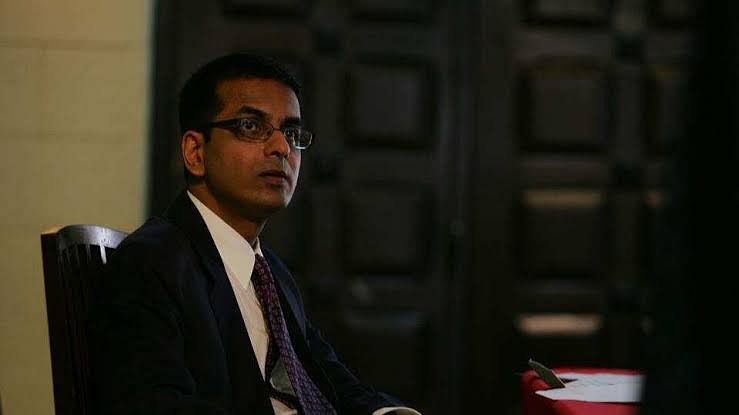


In light of the recent rape and murder case of a Kolkata doctor, Chief Justice of India DY Chandrachud noted that if conditions are not safe for women to go to work, it is a denial of their equality. He emphasized that the issue goes beyond just one case, and there needs to be a national protocol in place to ensure the safety of all doctors, especially women. The Supreme Court has proposed the formation of a national task force to establish guidelines for the protection of medical professionals and has urged protesting doctors to return to work.
CJI DY Chandrachud Calls for Safe Working Conditions for Women Doctors
In response to the recent rape and murder of a Kolkata doctor, Chief Justice of India (CJI) DY Chandrachud has highlighted the urgent need to address the issue of women's safety in workplaces.
Background:
The brutal attack on the 25-year-old doctor in Kolkata sent shockwaves across the nation. Protesting doctors have been demanding better security measures and swift action against the perpetrators.
CJI Chandrachud's Intervention:
CJI Chandrachud took cognizance of the case and stated that if women do not feel safe going to work, it constitutes a denial of their equality. He emphasized that the issue is not isolated and requires a comprehensive national approach.
Supreme Court's Proposal:
The Supreme Court has proposed the formation of a national task force to formulate guidelines for the protection of medical professionals, particularly women. The court has urged protesting doctors to return to work while steps are taken to address their concerns.
Top 5 FAQs:
1. What is the significance of CJI Chandrachud's statement?
CJI Chandrachud's statement highlights the systemic failure in ensuring the safety of women in workplaces. It emphasizes the need for urgent action to address the root causes of violence against women.
2. What are the proposed guidelines by the national task force?
The guidelines will focus on measures such as improved lighting, security cameras, and protocols for dealing with emergencies in hospitals and other healthcare facilities.
3. Why are protesting doctors demanding action?
Doctors are protesting the high incidence of violence against medical professionals and the lack of adequate response from authorities. They demand stricter penalties for perpetrators and improved security mechanisms.
4. What are the past events related to violence against doctors?
In recent years, there have been several cases of attacks on doctors in hospitals. These incidents have raised concerns about the inadequate protection of medical professionals.
5. How can we improve the safety of women in workplaces?
Improving safety requires a multi-pronged approach that includes improving infrastructure, providing training on gender sensitivity, and fostering a culture of respect and inclusivity.
Conclusion:
CJI Chandrachud's intervention and the Supreme Court's proposal for a national task force are significant steps towards addressing the issue of violence against women doctors. It is crucial that all stakeholders, including government agencies, healthcare institutions, and society at large, work together to create safe and equitable working conditions for women in all professions.

During a speech for Deepotsav 2025 celebrations in Ayodhya, Uttar Pradesh Chief Minister Yogi Adityanath criticized the opposition for denying Lord Ram's existence and obstructing the Ram Janmabhoomi Temple movement. He specifically called out the Congress for submitting an affidavit to the Supreme Court calling Lord Ram a myth and accused the Samajwadi Party of firing bullets at Ram devotees. Adityanath also emphasized the determination and resilience of the movement, which began in 1949 with the resolution "Ram Lalla Hum aayenge, Mandir wahin banayenge" and continues to this day.

Activists and advocacy groups staged massive demonstrations across the country in response to what they see as President Trump's abuse of power. With signs protesting policies such as mass deportations and the federal government shutdown, protestors showed a fierce love for their country. Though there were no reports of violence or arrests, Republicans labeled the demonstrations as "hate America" rallies. Organizers estimate that nearly 7 million people participated in over 2,700 cities and towns throughout the U.S., making it one of the largest reported one-day protests in American history.

With the 2025 Assembly Elections in Bihar on the horizon, the state's Araria constituency is gearing up for an intense revision of its electoral roll. This decision by the Election Commission aims to ensure that all eligible citizens are registered to vote in the upcoming elections. In the last election, the Congress emerged victorious in the constituency, but with no candidates declared yet, all eyes are on the official schedule for the 2025 Bihar Assembly Elections.

The Bharatiya Janata Party (BJP) in Andhra Pradesh marked Dhanvantari Jayanti with a colorful rally and speeches highlighting social inclusion, cultural heritage, and development. Leading state and district leaders, including BJP State president PVN Madhav, addressed the gathering and emphasized the party's commitment to equal respect for all religions and welfare initiatives for marginalized groups. At another event, Telangana BJP president Ramachandra Rao endorsed a proposed reservation for backward classes in Telangana and criticized the Congress and other parties for corruption while touting BJP's claim of clean governance.

Defence Minister Rajnath Singh, while flagging off the first batch of BrahMos missiles in Lucknow, warned Pakistan that their entire territory is now within range of India's powerful missiles. Singh also highlighted the success of Operation Sindoor, stating that it was just a glimpse of India's growing capabilities. The minister emphasized that BrahMos serves as a symbol of India's strategic confidence and is a key pillar of the country's defence forces.

Crowds gathered in various cities across the US and overseas today for the No Kings rallies, organized to protest against President Trump's administration and to defend First Amendment rights. From Los Angeles and New York to Chicago, Washington D.C, and Austin, Texas, protesters marched and chanted, carrying homemade signs with messages such as "We want all of the government to work" and "Make America Good Again." Despite the festive atmosphere, the message was serious as speakers called for the protection of Constitutional rights, which they feel are being threatened by the current administration.

After issuing directions earlier this year to expedite the disposal of execution petitions, the Supreme Court has expressed disappointment over the fact that more than 8.8 lakh such petitions are still pending across the country. Despite disposing of 3.38 lakh petitions since March, the Court notes that the backlog is still concerning. It warns that delay in executing decrees could result in travesty of justice and directs the Karnataka High Court to provide an explanation for not submitting data on pending cases.

With election results just around the corner, the Union Home Minister has reiterated the BJP's respect for its alliance partners. The decision on forming a government in light of the election outcome will be based on the results and mutually agreed upon by all parties involved. Stay updated with News24 for the latest developments in the political sphere.

In a surprise move, President Donald Trump has commuted the sentence of former U.S. Representative George Santos, who was serving a seven-year prison term for fraud and identity theft. Santos, a New York Republican, admitted to deceiving donors and stealing the identities of 11 people, including family members, to fund his campaign. The decision was announced by Trump on social media, spurring strong reactions from both supporters and critics.

In a significant development, Defence Minister Rajnath Singh inaugurated Hindustan Aeronautics Limited's third production line for the LCA Tejas Mk1A and also witnessed the aircraft's successful maiden flight in Nashik. The event also marked the inauguration of HAL's second production line for the Hindustan Turbo Trainer-40 (HTT-40). With the approval of the purchase of 97 LCA Mark 1A fighter jets, the need for new inductions has been underlined by IAF chief AP Singh, while HAL officials remain confident in meeting this requirement.